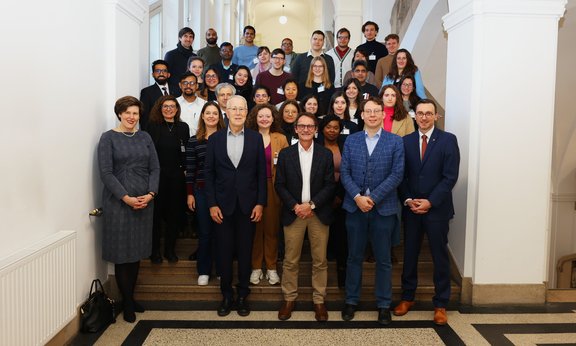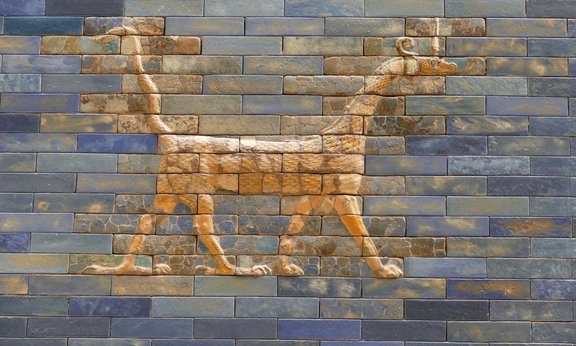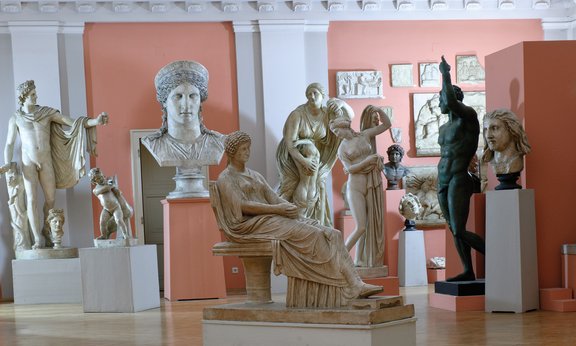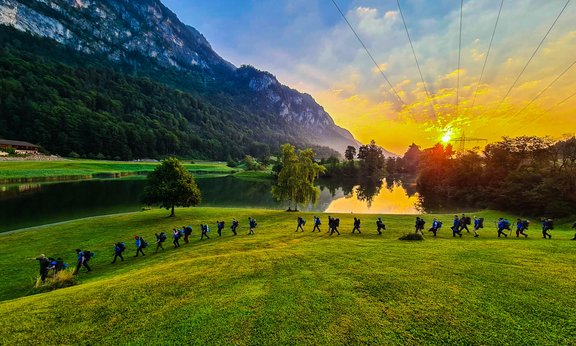Master’s Programme Archaeological Studies
You want to reconstruct past realities and specialise in individual archaeological disciplines?
Archaeology is the study of the physical evidence of humans and society over time. An objective reconstruction of past realities is based on the investigation and analysis of archaeological records in the form of soil records and artifacts.
In the Master’s degree programme the students may choose a focus in the individual archaeological disciplines.
Please note: the language of instruction for this programme is German.
Study Code
UC 066 691
FAQ
The Master’s Programme Archaeological Studies is aimed at graduates of the Bachelor’s Programme in Archaeological Studies and at Austrian and international students with a comparable Bachelor’s degree. It serves to advance the archaeological education from the Stone Age to the present on the basis of material culture, especially in the (pre-) Alpine and Mediterranean area and has its place at the interface of history, cultural and natural sciences. In addition to a sound theoretical education, students acquire in-depth knowledge of applied research methods in the sense of research-led teaching, in particular in the practical area such as the preparation, organisation, management and implementation of archaeological excavations and research projects, in the field of conservation, restoration, scientific processing and subsequent museum presentation of archaeological find complexes. The following areas are offered in Innsbruck: Prehistory and Early History, Near Eastern Archaeology, Classical Archaeology, Provincial Roman Archaeology and Medieval and Modern Archaeology.
Graduates understand the importance of dealing with material culture as a source of knowledge for expansive subject areas. They acquire the skills to process archaeological source material independently and on their own responsibility, i.e. to analyse it with theory-based questions and to evaluate it with the help of archaeological, historical and natural science methods. They are able to interpret the results obtained, to situate them in their historical-cultural context, to classify them in terms of the history of science and to take an independent critical position vis-à-vis existing scientific and popular views, theories, ideologies and dogmas. They possess the competence to present the facts resulting from their independent research in a critical, factual and clear manner, i.e. they can present, communicate and put them up for discussion at different levels. Through the examination and respectful treatment of the cultural heritage of the past, students gain an understanding of the diversity of human cultures, i.e. different historical, political, cultural and religious positions, traditions and values.
The Master’s Programme Archaeological Studies qualifies graduates for jobs in research or teaching institutions, such as universities and academies, in institutions for the preservation of historical monuments, in museums and in the field of freelance archaeological work, in accordance with the primary job profiles. In addition to preparing for specialist archaeological
professions, students acquire competences and key qualifications that enable them to work in fields of work and professions with very different requirement profiles:
- Museology, collections and exhibitions
- Preservation of historical monuments and cultural assets
- Private archaeological service providers (excavation companies ...)
- Tourism, cultural travel, cultural education
- Art trade (galleries, auction houses)
- Archive, library and documentation services
- Public service (culture, education, diplomacy)
- Subject-specific adult and vocational training
- Cultural management, cultural policy and public relations
- Press and media relations (print and audio-visual media)
- Publishing and book trade, journalism
Graduates tracking: Shows which occupational fields students enter after graduation
Faculty of Philosophy and History Examination Office Information for students with disabilities
Curriculum
From the field

„Winter School on Federalism and Governance“ in 15. Runde
29 postgradual Studierende und Nachwuchsforschende aus Afrika, Amerika, Asien und Europa nehmen derzeit an der 14. Winter School on Federalism and Governance teil, die sich – ganz im Einklang mit dem Querschnittsthema „Nachhaltigkeit“ an der Universität Innsbruck - dieses Jahr dem Thema „Federalism and Sustainability“ widmet und unter der Schirmherrschaft des Europarats steht.

FWF fördert 6 Projekte
Bei der FWF-Kuratoriumssitzung im März wurden vier Einzelprojekte und zwei Esprit-Projekte von Wissenschaftler:innen der Universität Innsbruck bewilligt.

Marianne-Barcal-Preis 2023 vergeben
Seit acht Jahren wird der Marianne-Barcal-Preis jedes Jahr an Studierende der Universität Innsbruck verliehen, die sich durch hervorragende Abschlussarbeiten in den Fächern Zeitgeschichte, Politikwissenschaften, Geschichte sowie benachbarte Disziplinen ausgezeichnet haben. 2024 geht der Preis an drei Wissenschafter zu je 2.000 Euro Preisgeld.

Madagaskar, Medien und Außenpolitik im Wald
Studieren ist mehr als Zuhören im Hörsaal: Student:innen gestalten Podcasts, fahren nach Madagaskar auf Exkursion, treffen Medienschaffende und helfen, die Leistungen des Waldes zu erhalten.
Related studies

English and American Studies (Master)
Master of Arts

Educational Sciences (Master)
Master of Arts

Romance Studies (Master)
Master of Arts


















